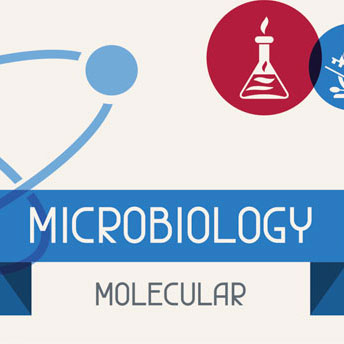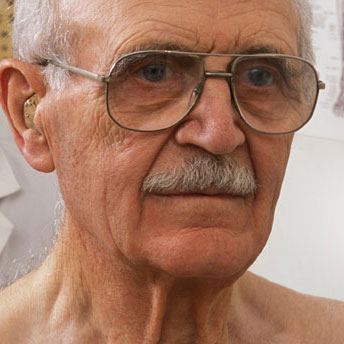
Genetic and molecular profiling are some of the many available personalized tests that impact a better cancer treatment plan.
Unipathic Medicine Uses Molecular Targeting To Vastly Improve Chemotherapy
Unipathic Medicine seeks to bring you the best of all medical disciplines at the highest level. We have been improving standard overall personalized oncology, chemotherapy and changing the direction that cancer treatment is moving clinically for 15 years. Unipathic Medicine features a customized mode of treatment and diagnosis, which is centered on building a medical blueprint and using molecular profiling/genetic testing as the basis. It is important to note that no two cancer patients are alike and therefore in-depth testing allows for the best selection of drug and non-drug approaches based on the scientific literature. This helps patients to outperform the old pharma model.
This powerful video shows the need for molecular profiling and genetic testing in cancer treatment.
It is clear that targeting is very important to getting to the root of a patient’s disease, and that is why we developed Genetically Targeted Fractionated Chemotherapy or GTFC for short. Using molecular profiling to find the best chemotherapy agents, this method allows us to use multiple drugs in lower dosages to help reduce resistance, enhance targeting and improve overall treatment. For those who don’t know, the goal of molecular profiling in cancer is to look for biomarkers which are measurable indicators of some biological state or condition. This happens to be the only discussion at all major oncology symposiums around the world but it is not being given to patients in standard settings. When combined with targeted immunotherapy and nutritional therapy, patients that utilize GTFC often claim they have more energy and feel healthier compared to the standard methods used. We maintain that targeted therapies are better than standard chemotherapy because targeted therapies act on specific molecular targets, whereas most standard chemotherapies act indiscriminately, causing damage to all cells. GTFC also allows for fractionation which means micro dosing and more mechanisms of action applied to one treatment.
It was revealed at the 2013 annual meeting of the American Society of Clinical Oncology (ASCO 2013) that, “there are now multiple molecular markers defining smaller disease groups across many types of cancer, and it is important that these results are translated effectively into clinical practice.” Unipathic Medicine is well ahead of the curve because for years GTFC has been centered on molecular markers and it has been revolutionizing how patients receive cancer treatment. It is important to note that unlike other forms of chemotherapy, GTFC sessions are shorter and use feature lower-dosages. Therefore, GTFC is much less taxing on your body and favored by many patients. In conjunction with GTFC, Unipathic Medicine uses detailed laboratory assessments for immunotherapy, analyzes tumor micro-environment, causation, nutrition, amongst others and delivers intravenously, targeted treatments. The latest technologies are also available to patients and physicians under Unipathic Medicine practices.
Targeted therapies are not without their flaws. Cancer cells can become resistant to them. The National Cancer Institute says, “Another limitation of targeted therapy at present is that drugs for some identified targets are difficult to develop. One example is Ras, a signaling protein that is mutated in as many as one-quarter of all cancers (and in the majority of certain cancer types, such as pancreatic cancer). To date, it has not been possible to develop inhibitors of Ras signaling with existing drug development technologies.” (2) As with most things, time will sort this problem out, but for right now, Unipathic Medicine is ahead of the curve when it comes to technology and the appropriate philosophy related to an overall cancer treatment plan.
Despite limitations and other forms of cancer treatment, molecular targeting is the wave of the future in regards to cancer treatment. Standard chemotherapy does a lot of harm to patients so we stand by our micro dosed method of GTFC. It is important to note that drugs have their uses but they should not be the only answer that the patient seeks. Treatment must go beyond the pharmaceutical model and we have done this. Other factors such as nutrition, phytotherapeutics, (plant extracts that many times have supportive mechanisms of actions to chemotherapy when typed properly), strengthening the immune system and having the right system in place to help patients are paramount in order for true healing to take place. Unipathic Medicine provides all of this and more. If you wish to learn more about Unipathic Medicine or GTFC, simply contact us.
References
[1] Barnard, Claire. “Molecular profiling and targeted treatments in cancer: translating subtypes into clinical practice.” BMC medicine. June 24, 2013. http://blogs.biomedcentral.com/bmcblog/2013/06/24/molecular-profiling-and-targeted-treatments-in-cancer-translating-subtypes-into-clinical-practice/
[2] “Targeted Cancer Therapies.” National Cancer Institute. April 25, 2014. http://www.cancer.gov/cancertopicss/factsheet/Therapy/targeted
Questions?
Would you like to learn more about Unipathic Medicine and options for you or a loved one? Send us a message and a well-trained member of our team will promptly respond. Best of health!
Your message has been sent!2024 ™ Unipathic Medicine. All Rights Reserved. Home |Disclaimer | Privacy Policy | Terms of Use



